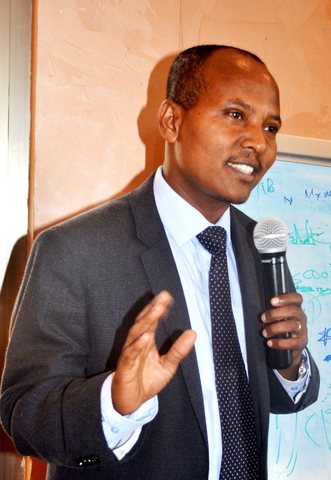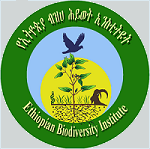 EBI hosts African regional workshop on Mainstreaming Biosafety in to NBSAP
EBI hosts African regional workshop on Mainstreaming Biosafety in to NBSAP
 |
From February 9 to 12, African Regional Capacity Building Workshop on Mainstreaming Biosafety into National Biodiversity Strategies and Action Plans was held in Addis Ababa, by the Secretariat of the Convention on Biological Diversity, in collaboration with Ethiopian Biodiversity Institute and the African Union Commission, Charles Gbedemah, representative of the CBD Secretariat on his opening remarks explains the goal of this workshop is to develop the capacities of Parties in Africa to advance the implementation of the Cartagena Protocol on Biosafety through effective integration into NBSAPs and national development plans in line with the Strategic Plan for the Protocol and the relevant Aichi Biodiversity Targets. It also aims to increase the capacity of Parties to mobilize sufficient and predictable resources for the implementation of the Protocol and to ratify the Nagoya – Kuala Lumpur Supplementary Protocol on Liability and Redress. On his opening remark of the workshop Dr. Gemedo Dalle, Director General of Ethiopian Biodiversity Institute, after welcoming the participants to the land of thirteen months of sunshine, said there are uncertainties associated with genetic engineering issues of concern include safety of the products like GMO’s and LMO’s for human consumption and their impact on environment particularly biodiversity. So as delegates from the region, we need to make use of opportunities and protocol under the existing legislation. |
|
As organizer of the workshop Worku Yifru, CBD Secretariat, said the workshop provides an opportunity for the participants to review the progress made and share experiences and lessons learned in the implementation of the Protocol, discuss strategies to improve the integration of biosafety into NBSAPs and national development plans. And identify options for enhancing the mobilization of resources for the implementation of the Protocol. In some African countries biosafety was captured at different levels including the guiding principles of NBSAP. Biosafety is relevant in the aspect which products of modern biotechnology are allowed to go on and mix with native species which might be wipe out. |
|
|
In order to increase the effectiveness and appropriateness, this Workshop consisted of Exchanging experiences, good practices and lessons learned on resource mobilization by Conducting case studies to analyze how biosafety is integrated in or relevant to existing policies, strategies and activities; identify challenges faced, capacity needs and opportunities. There were approximately 50 participants at this Workshop, which consisted of the national focal points for the Cartagena Protocol on Biosafety or competent national authorities, NBSAP coordinators or CBD national focal points from 34 African countries as well as Secretariat of the Convention on Biodiversity, representative of African union commission and local participants from Ethiopia. In order to assist the efficient implementation of mainstreaming the Biosafety Protocol into the participating nation’s NBSAP, ‘SCBD conducted presentations on Status and trends in the implementation of the Cartagena Protocol on Biosafety in Africa, Linkages between the Strategic Plan for the Cartagena Protocol on Biosafety (2011-2020) and the Strategic Plan for Biodiversity 2011-2020 and its Aichi Biodiversity Targets and others. |
|
|
|
|
| Release date | 08/03/2016 |
|---|---|
| Contributor | IT Team EBI |
| Keywords | Mainstreaming, Biosafety, NBSAP, |
Please note that this information has expired.

